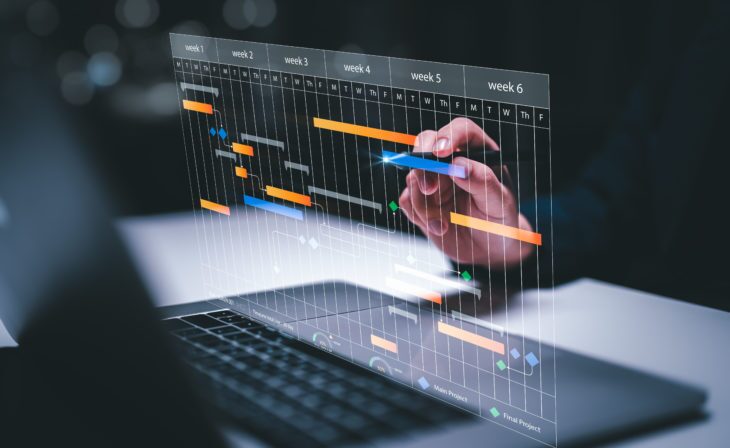Artificial intelligence (AI) is quickly becoming a transformative solution for M&A due diligence, capable of rapidly analyzing immense datasets and surfacing insights with unprecedented speed and precision. From accelerating document review to identifying hidden risks and opportunities, AI is reshaping how deal teams approach one of the most critical phases of a transaction.
However, before we explore the benefits, risks, and growing importance of AI due diligence in M&A, it’s important to note that AI is not a fully-fledged solution just yet.
At this stage of adoption, AI delivers the greatest value when paired with experienced M&A experts who can validate its findings, interpret nuanced risk factors, and provide context that algorithms alone cannot offer.
Want to see AI tools supporting M&A processes in action? Explore Acquinox Advisor’s AI-powered valuation tool to receive accurate company valuations in mere minutes.
What is AI Due Diligence
Artificial intelligence (AI) due diligence is the process of using AI to assess and verify information during a merger, acquisition, or similar business transaction. AI’s biggest advantage is that it can quickly analyze immense volumes of data, identify trends, and provide key insights, a process that usually takes weeks or even months to complete. This functionality has broad implications for multiple due diligence processes, including:
- Data Collection and Processing
- Risk Identification and Compliance
- Financial Analysis and Valuation
- Operational and HR Analysis
- Market Intelligence
Instead of completing each of these steps manually, M&A teams can leverage AI to conduct the bulk of the analysis, leaving the experts free to focus on more strategic tasks. This has several major benefits, but also comes with a handful of risks.
The Benefits of AI Due Diligence
Cost and Time Savings
AI tools can significantly reduce both the time and cost associated with M&A due diligence. By automating repetitive tasks like document review, data extraction, and contract analysis, AI can cut diligence timelines by weeks, allowing deals to be completed much faster.
This efficiency translates into substantial cost savings on legal, advisory, and data management services, especially in complex transactions involving large volumes of information. In many cases, AI enables smaller deal teams to accomplish what would traditionally require a much larger workforce, making the entire process leaner and more scalable.
Pattern Recognition to Uncover Risks and Opportunities
Perhaps AI’s most powerful attribute is its ability to recognize patterns and anomalies in large volumes of both structured data (data that is organized and searchable like a database or spreadsheet) and unstructured data (data that has no set format like emails, contracts, or PDFs).
Most modern AI tools can analyze both types of datasets, allowing them to dissect everything from written financial reports to operational metrics. Additionally, AI can search for both red flags, such as irregular payment terms, non-standard clauses, and sudden revenue shifts, as well as opportunities, like underutilized assets, high-performing customer segments, or cost-saving redundancies.
This level of insight gives teams a more complete picture of both risk and value before finalizing a transaction.
Freeing Teams for Higher-Level Tasks
AI tools in M&A due diligence can dramatically reduce the manual workload, freeing deal teams to focus on higher-level strategic analysis and decision-making.
By automating data-intensive processes like document review or risk flagging, AI allows teams to spend more time on qualitative parts of the deal process, such as identifying value-creation opportunities, analyzing intangible assets, or crafting a powerful equity story. This shift not only improves efficiency but also enhances the quality of insights brought to the table, as teams are no longer buried in low-impact, repetitive work.
In fast-paced deal environments, this elevation of human focus can be a key differentiator in driving smarter, more successful outcomes.
However, leveraging AI is not completely without risk. Let’s explore some of the potential downsides of relying on artificial intelligence.
Risks to Consider With AI Due Diligence
Hallucinations and Bias
An AI hallucination is an incorrect or misleading result from an AI model, often the result of insufficient training data or biases in the data that the model is trained on. The biggest problem with AI hallucinations is that models will often portray incorrect results with confidence, making it hard to identify incorrect statements. Again, this is why it’s critical to partner with a team of M&A experts who can fact-check and monitor AI outputs.
Hallucinations can be especially troubling if you’re relying on the model for mission-critical tasks.
Data Security
AI models require access to large datasets in order to generate relevant, accurate results. This presents a significant risk when sensitive information such as financial records, legal documents, or employee data is involved. Companies must ensure that any data fed into AI systems is handled with strict security protocols, including encryption, access controls, and secure storage environments.
If the AI platform is cloud-based or managed by a third-party vendor, then there are additional layers of exposure that need to be assessed and secured.
While AI is an incredibly powerful tool, it’s critical to ensure that robust data security policies are implemented to protect both parties and maintain confidentiality throughout the deal.
Legal and Regulatory Compliance
Incorporating AI into M&A due diligence also introduces legal and regulatory risks, particularly when handling sensitive or cross-border data. Depending on the jurisdictions involved, AI tools must comply with data privacy laws such as GDPR, CCPA, or sector-specific regulations that govern how information is stored, processed, and shared.
If the AI model lacks transparency, there’s also a risk of unintentionally violating intellectual property or anti-discrimination laws.
To mitigate these risks, companies should vet AI platforms for compliance, maintain human oversight, and ensure all data practices align with applicable legal standards.
Implementing AI Due Diligence With Acquinox Advisors
Use of artificial intelligence in due diligence processes delivers significant advantages when it comes to cost, speed, and insights gained, especially for traditionally time-intensive tasks. It empowers deal teams to focus on higher-level strategy while surfacing a more complete picture of value and risk. However, with these benefits come critical responsibilities.
When deploying AI, it’s important to ensure data security, mitigate legal exposure, and guard against model hallucinations and bias. To fully harness the power of AI without exposing your deal to unnecessary risk, expert guidance is key.
Acquinox Advisors helps clients combine cutting-edge AI capabilities with seasoned M&A expertise to navigate due diligence with precision, confidence, and speed. Contact the Acquinox Advisors team today.





